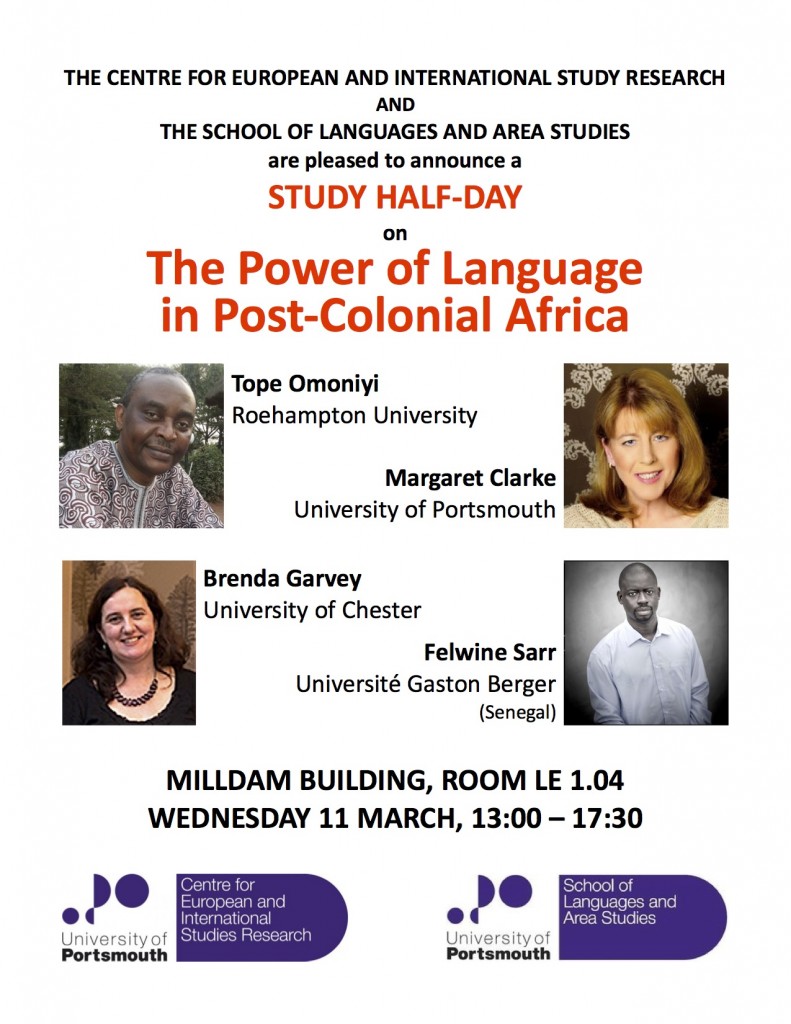Wednesday 11 March 2015 (1.00-5.30pm), Milldam LE1.04
The role of the former colonisers’ languages has been a central concern in postcolonial studies. This has generally been examined in terms of the two broad positions of appropriation and abrogation, articulated most vigorously by postcolonial writers throughout the second half of the twentieth century. In the twenty-first century, the debate is still relevant, with a number of questions that remain open with particular reference to postcolonial settings:
- what are the roles of local and European languages in the tension between global cultural/economic flows and local issues of identity, state-building and continued efforts towards decolonisation?
- what are the motivations and consequences in recent developments regarding language policy?
- to what extent is the metaphor of appropriation able to describe the position of European languages within the sociolinguistic scenarios?
- how can the concepts of super-diversity and language hybridity help us re-conceptualize the link between language and national identity?
In our study day we would like to bring together writers and scholars to address those questions with reference to specific contexts in Anglophone, Francophone and Lusophone sub-saharan Africa.
Programme
13.00-13.15: Welcome
13.15-14.45: Anglophone and Lusophone Africa
- Prof Tope Omoniyi (Roehampton): Disseminating Public Health Information: Lessons from Ebola
- Dr Margaret Clarke (Portsmouth): Portuguese: an African Language? National Policy and Linguistic Reality in Angola and Mozambique
14.45-15.15: Tea
15.15-16.45: Francophone Africa
- Brenda Garvey (Chester): Social identity and (self)representation: the case of urban Wolof in Senegal
- Dr Felwine Sarr (Université Gaston-Berger, Saint-Louis, Senegal) – Writing as an idiomatic construction of singularity
16.45: Short break
17.00-17.30: Concluding round table

